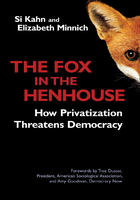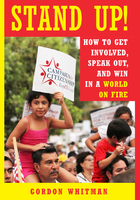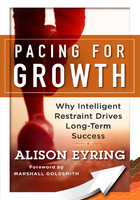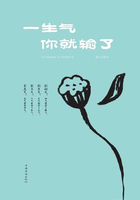Cape Town
Lunchtime at Camps Bay Primary School is when things tend to go severely wrong. Outside the structure of a syllabus, beyond the rigorous scrutiny of our teachers, I reliably blunder. These forty-minute daily ordeals typically consist in no small portion of us prattling about what our parents prattled about over the last night's supper table. Election time is no different.
"Who are your parents voting for?" Joan turns to Catherine first. Joan is my best friend, and the only girl who can legitimately kick my ass at the hundred-meter sprint. Of course, going to an all-white public school does cut out a good chunk of the competition.
"The Nats, obviously." Catherine nibbles delicately on the edge of her sandwich. Blond, green-eyed, and irritatingly demure, Catherine is the resident beauty in Standard 4P, Camps Bay Primary. At least half of the boys sitting on the other end of the playground spend lunchtime gazing at her with unadulterated longing. I, on the other hand, wend my way from one humiliating, clumsy crush to the next. Any attention I do get from boys is strictly limited to my skinny legs or massive, unwieldy glasses. Following the purchase of our house in Camps Bay, a sleepy beach suburb of Cape Town, my parents had been feeling a tad pinched when it came to finances. My mother succeeded in convincing my sister and me that her old frames were just perfect for us. Given that my vision verges on legally blind, the abnormally thick, oversized lenses make for a fearsome sight.
"How about you?" Joan turns to Meredith. At nine, Meredith's body had blossomed into untimely womanhood. At eleven, she remains the only one among us who can fill a bra without the assistance of socks. "Mer's tits," says Jonathan West, who sits behind me in class and torments me mercilessly with sharpened pencil points, "could feed all of Africa. Even Ethiopia."
"The Nats," says Meredith, barely glancing up from her chips. I am growing anxious. Joan is working her way methodically through the ranks. Any moment now, she's going to turn to me.
"Deb?"
"Nats."
"Melanie?"
"Agh man, the Nats, what do you think? You think they're dom? My mom says the PFP would hand this country over to the blacks."
"My dad says the blacks would get rid of us in a minute if they were clever enough," says Catherine.
"My dad says they would kill us and take our homes," says Joan. "But I mean, the blacks are too stupid to even get the washing done properly, so how would they be able to run a country?"
"Agh please, that's ridiculous," offers Meredith, coming to life, breasts a-jiggle as she shakes her head in vigorous derision. "There's no way a black could be president. They don't have brains, man, they can only be gardeners and maids. Can you imagine? Hello, Mr. Black President," she pantomimes speaking into a telephone, "can you please bleach Donald's nappies before you meet with all those politicians?" "Yes, madam, of course madam, the nappies are in the outside sink already." Meredith says this with a thick Xhosa accent, and we all screech with laughter. I know it's wrong, though. I know it, but I'm terrified of what's about to come.
Joan resumes the reins. "Lauren?"
"Nats."
"Marisa?" Her cool blue gaze meets mine. I look at the ground.
These days, the casual observer might wonder: how did apartheid ever happen? When you speak to white South Africans today, no one ever voted for the National Party. The National Party was the bastion of politically sanctioned racism for decades; it spawned bigoted leaders like rounded white peas out of some eugenics-concocted pod. Mysteriously, despite this purported dearth of support among the only population eligible to vote, the National Party won election after election. This collective rewriting of individual political history is a rosy indicator of just how rapidly change can happen: a mere handful of years after apartheid officially ended, white South Africans acquired a conscience. Even, I would venture to say, a sense of shame.
Of course, there were many white South Africans who objected to apartheid for decades, and who played more or less visible roles in the anti-apartheid struggle. My mother, marching against apartheid in the sixties at Johannesburg's University of the Witwatersrand, got beaten over the head with a baton and unceremoniously carted off to jail thanks to her wayward conscience. I was lucky. My parents raised us to question the status quo. "It's not right that the blacks only live in townships outside the city instead of in places like Camps Bay and Clifton," my mother would say, her eyes wide, frightening. "It's not normal to only go to school with white children. This is a very sick country. Do you understand?" I'd nod, attempting to square this insight with the glaring contradiction that was daily life. My mother pointed out time and again that the society in which we lived was unnatural. That, and my parents voted for the Progressive Federal Party —the only party with any constituency that both preached a mild form of equality and, being white, retained legal status. Conservatives alleged the PFP stood for "Packing for Perth," mocking the white liberals emigrating to Australia in subdued droves. The African National Congress—the leading anti-apartheid movement turned governing political party with the establishment of majority rule in 1994—was long underground by the time I hit puberty.
"Marisa?" Joan is waiting expectantly. I say nothing. Slowly the other girls turn toward me, wondering at the silence.
"Marisa?" Now she is impatient, wanting to get on with her show. I keep my eyes on the ground. Twelve identical pairs of brown mary-janes. Twelve pairs of gray kneesocks with our school colors on the top: green, red, yellow. Maybe if I close my eyes and then open them again I'll wake up. I try it. Joan is directly in front of me, feet planted apart, arms crossed, scenting blood.
"Come on man, go already!"
Isn't it enough that my mother never participates in the carpool, steers miles clear of PTA meetings, and refuses to socialize with the other mothers? Must I be put through this, too?
"The PFP," I whisper.
There is a moment of stunned silence, then a babble of shrieked responses. I sit glumly through the hailstorm, eyes on the ground. Finally it eases off into shocked half-phrases. I am shrinking into myself, praying to disappear, to evaporate with a soft pop into thin air, or melt down to an innocuous puddle of green uniform and gray socks. Joan remains positioned in front of me, rigid, furious at how I have failed her. The other girls quiet down, appetites whetted, settling in for the show.
"Do you want to hand South Africa over to the blacks?"
"No. I mean, they do live here also. Actually there's a lot more blacks than whites in South Africa. Did you know that eighty percent—"
"Do you want to hand South Africa over to the blacks?" Joan is very serious now, face still, her stare hard. All of them are watching me in an unearthly silence. I feel waves of panic washing through me. This is my best-friendship on the line. No, this is my entire, precariously balanced, laboriously constructed social status. This is, perhaps, my life.
"I don't think blacks are stupid." I think of the few black people I know, all domestic workers in white homes. I think of the black man I passed in the street with my brother yesterday, of his courteous "Good morning, madam, good morning, little master." I think of Maureen with her plump, open arms, of July with his gentle instructions. "I think they're as clever as us." A hushed uproar rises from the peanut gallery. Joan steps in menacingly.
"Do you want to hand South Africa over to the blacks?"
I've taken risks before. While I want nothing more than to be popular, at times an irksome tendency to do what I feel I should do— without calculating the consequences to my social status—pops up. I'm pretty low on the totem pole as it is, but I've earned myself an unwanted reputation standing up for "fatty" Felicia Sperling, who's at the very bottom. Recently I lectured Felicia at length, telling her it was time for her to speak up for herself, that I just didn't have it in me to keep defending her. Now I meet her eyes. She is sitting somewhat apart from the rest of us, mouth open midchew at the drama. Do I detect a glimmer of sympathy? The rest of the girls follow my gaze like spectators at a tennis match. I look back at Joan.
"I think a black person could be president."
There it is. Frail but clear. My voice.
The tension bursts like a punctured balloon as everyone starts speaking at once. Joan glares at me, jaw clenched. She shakes her head slowly and turns away. That's it. I'm ruined.
I guess that's where it begins. Saying no is hardest the first time. When you are sufficiently privileged that yes is handed to you on a platter, when virtually everything around you whispers, hollers, cajoles, winks yes, yes please, yes now, just say yes—well, that's when saying no feels impossible. And then out of nowhere you just say it. No, thank you. Hell no. Not this time. I don't know what prompts it. Maybe courage. Maybe bravado. Or desperation. But the next time—it may be the next minute, or the next year, or a thousand yeses later—it's a little easier.
People often ask me how it was growing up in apartheid South Africa. It felt normal, I say. It was all I knew. Apartheid only became truly odd, wrong, twisted, once we'd left South Africa. It may be grotesquely warped, but if you are a child born and bred in a segregated society, a rigidly stratified and censored society, it's all you know. I was aware that it was wrong; my mother told me, and when I became very still I felt it. But until I stepped into the multicolored throngs of the San Fernando Valley's Portola Junior High at age eleven in 1988, apartheid South Africa was simply all I knew. I was living the life that had been handed me. Saying no was the exception, not the rule. Yet this timid no was where it all began for me. Where I started to trust what ran deeper than the assumptions and conventions of my society. Every society assumes that its way is the norm, the natural way. It takes a flying leap beyond the frame to conceive of other possibilities. To believe in them.
After three generations in South Africa, my parents' decision to emigrate to the United States was simply another stitch in an extended embroidery of migration. We are Jews, and the history of Jews is invariably a meandering, punctuated affair—a series of leaps in the direction of possibilities. At the turn of the twentieth century, my great-grandfather on my father's side, Max Faiman, left his hometown of Gomel, Belarus, on a boat bound for New York. He took a job as an apprentice in a bakery, working such long hours that he never saw daylight. Then someone mentioned South Africa. And again: South Africa. There's gold there, Faiman, diamonds too. Big as your fist, ripe for the picking. South Africa eased its way into Max's bushed brain, hung in the air with the flour, stayed put as palms pressed dough to pastry. Three years after arriving in New York, Max boarded a boat to Cape Town.
I can see my great-grandfather stepping into the harbor, exhausted and stiff-necked, cursing in Yiddish at the goyim pushing and clomping around him. He looks up. There, enshrouded in gauzy wisps of cloud, is Table Mountain: massive, rocky, astonishingly flat. She winks at my great-grandfather, stretches sturdy arms out to him. Below her, the city nestles, a cluster of colonial architecture. And before them all—Max, Table Mountain, the city—before them all: the Atlantic, stretching spread-eagled in sun-drenched abandon, lapping lazily at the quay. Who wouldn't fall in love with Cape Town? What fool would turn his back upon such calculated seduction? My great-grandfather hastily blessed his good fortune, squared his shoulders, and scurried off to build a life. He bought a property on Hanover Street and industriously set about starting his own bakery. For two decades the Faimans lived directly upstairs from the fragrant font of their livelihood: the American Bakery, with the stars and stripes themselves beckoning from the window. The American Bakery, smack in the middle of District Six.
If you go to the District Six museum today, you can find my great-grandfather's bakery on the oversized map of the neighborhood. It was originally an immigrant quarter. As immigrants moved up and out, blacks and coloureds—a culturally distinct population, the product of then-illegal miscegenation—moved in. District Six was one of the only racially integrated urban neighborhoods in the country. Blacks and whites, Jewish immigrants and Muslim descendants of slaves hauled over from Indonesia: you name it, they passed through. Chuckling on their stoops, gossiping over fences, bellowing at each others' kids.
But by the time my parents met and married in 1972, District Six was a wasteland. In 1966, the government had invoked the notorious Group Areas Act, declared Cape Town's center and immediate environs suitable only for white occupation, and proceeded to categorically remove over sixty thousand "unwanted" residents from District Six to distant townships. The neighborhood was then razed to the ground by bulldozers. Yet all the employment was in the city and its surrounding white suburbs. Most blacks, like our maid Maureen, occupied a tiny room in their employer's household for six days out of the week. On Sundays, they traveled home to the black townships, to their children and families in the squalid, sprawling mazes of Langa, Guguletu, and Khayalitsha.
Between 1950 and 1986, the apartheid government, with its policies of "separate development," forcibly relocated around 1.5 million people of color from cities to rural reservations. The District Six that had been the idyll of my grandmother's childhood had, by the time I was old enough to pay attention, curdled into an ominous place, a name that left only silence or epithets in its wake. When I went back to visit South Africa after graduating from college, I tried to find a trace of District Six. But there was nothing. Undeveloped plots sat eerily in the midst of the city, waist-high grass undulating in the wind.
Max Faiman left his homeland because he believed in possibilities. He marched boldly into paradise, just like my family would nearly a century later. But as we learned in South Africa and then again in the U.S., paradise is problematic. Paradise, as I discovered after significantly more practice saying no, plays favorites. Monogamous to the end, it belongs exclusively to those who own it. As for the rest? Theirs are the lives displaced into ghettos and townships, the dreams deferred. For me, at age eleven, wondering about God and racism and my own place in the scheme of things, caught between a religion that told me I belonged to the chosen people, a society that told me I belonged to a different set of chosen people, and parents who told me everyone was equal, paradise was starting to seem like rather shifty territory.
I walk home slowly, each step miring me further in a sucking swamp of despair. Will anyone in Standard 4P ever speak to me again? Unlikely. I open the gate to our house and walk around to the backyard, across its cement squares, through the back door. Maureen is at the kitchen sink, hands immersed in warm, soapy water. She sees my face.
"What's wrong, baby?"
"Nothing, Mau. I'm hungry."
She pulls her hands out of the water, dries them on a lappie, and begins preparing my favorite: toasted cheese and tomato. I drop my backpack on the floor and slump into a chair. Usually this is a happy time: my sister and brother are still at school, so I get an hour alone with Maureen. I watch her broad back as she moves from fridge to counter, counter to toaster, toaster back to fridge. She is wearing the standard uniform: pastel checkered housedress, colorful doekie covering her short, wiry hair. I am endlessly fascinated and repelled by her hair, and the various greasy, bitingly sweet products she applies to it. At night, when I visit her in her room, I examine these, stockpiled as they are on a makeshift shelf along with a plastic Jesus, sample bottles of lotion and shampoo, and a dusty assortment of items discarded by my family.
"Mau, do you think a black could be president?"
"What, Mimi?" Maureen turns to me, taken aback.
"Do you think a black could be president?"
She purses her lips over the large gap that was once, who knows how long ago, two front teeth. She lost them during a drunken binge, when she fell into a pole. Although I heard my father speculating, when he thought I was out of range, that it was probably her ex-husband's work.
"No, Mimi. If a black was president this country would be in even worse shape than it already is." Maureen sets my sandwich down in front of me, neatly cut into quarters, and turns back to the sink.
"What, Mau? What are you talking about? Don't you want Nicky and Thobela to be able to live in a house like this?" Nikelwa, Maureen's only daughter, is currently in nursing school, unwed and with a baby on the way. Thobela was recently arrested for dealing dagga from our house. I returned home from school one day to find our home teeming with police, Thobela in handcuffs, and Maureen wringing her hands and apologizing tearfully to my parents.
"Blacks too much like to have a good time. Too much alcohol and smoking dagga." Maureen regularly warns me never to drink. Soon after my parents hired her, my mother returned home from work to find the house in disarray. My little brother was screeching from their bedroom, nappy full and stinking, hands and face covered in jam from breakfast. Maureen was passed out on the floor. She had been pilfering from my parents' liquor cabinet, stealthily replacing the booze with water. Instead of firing her, my mother took her to Alcoholics Anonymous. Maureen was the first black member of the Cape Town chapter. She found Jesus. She turned her life around. Today, she speaks on the AA circuit, and is a resolute, fiery coach to others trying to drag themselves back onto the wagon.
"Agh man Mau, I don't believe you. This country will never change if everyone thinks like you." I get up, in sudden, ferocious need of her strong arms, wide hips, the pure unalloyed physicality of her. I squeeze her tightly around the waist as she collapses into characteristic giggles.
"No Mimi! Stop! Get off!" She pushes me gently with wet hands. I squeeze tighter and she shrieks with laughter. My love for Maureen is what I will later, when we are long gone, realize is a rare, perhaps once-in-a-lifetime, kind of love. It is naked of fear, resentment, guilt. It is a love in which I have not yet learned to lie. A love wholly uncomplicated in perhaps the only way love can be wholly uncomplicated— when it is far too complicated on the other end. For the love Maureen gives us is love lost to her own three children. Yet any bitterness she feels is kept from us. I sometimes wonder what would happen if my parents stopped paying her. She'd stay, wouldn't she?
I ease up my grip. "Don't you think it's unfair, Mau? Don't you think it's wrong?"
She looks down at me sternly. "God grant me the serenity to accept the things I cannot change, the courage to change the things I can, and the wisdom to know the difference," she pronounces emphatically. She digs in her pocket, and hands me yet another card imprinted in curlicued type with the phrase. I have a veritable collection of them upstairs.
I don't know about God. When Maureen says things like this, I wonder. I used to believe in Him. I would go to the children's services with my grandmother and sister and brother and pray fervently. I prayed so much it stung. Was that God? Those twinges, like a bee pinned to the back of my ribs? Or sometimes, in beautiful places—at the top of Table Mountain, watching the sunset from Camps Bay beach—I would be flooded with something achingly huge, bigger than me or the latest classroom drama, something exquisite and multihued and piercingly clear. Was that God? Or sitting in my classroom, suddenly inundated out of nowhere with a surging love for all the people around me, even Jonathan West, so much love that I had to swallow back tears—perhaps that was God? When I asked the rebbitzen at Hebrew school what God was, she said, in her nasal New York accent, avoiding my eyes from beneath her stiff sheitl: go ask the rabbi. When I asked the rabbi, he told me he was busy. When I asked my mother, she said God is love. God is good. I like that idea. But what about all the bad? Does God just not care? That seems rather unfair. The siddur says that we are God's chosen people. In that case, are all the goyim unchosen? Or are just the blacks unchosen? What about the coloureds? Are they half-chosen? What about my second cousin Lily? Did she get unchosen when she moved in with Nigel? Nigel is coloured, definitely not a Jew. My parents are the only people in the family that still speak to Lily. Lily and Nigel came over for tea, and Lily started crying in the middle of eating her scone. Lily's grandfather refused to speak to her father when he married a goy. Then Lily had children with a coloured, and now her father won't talk to her, even though he's in the hospital with a heart condition.
I used to believe in God, but now He makes less and less sense.
I knew we were leaving South Africa for a good two years before we actually packed up, although my parents swore us to secrecy. It was 1986, directly before my tenth birthday, when the reality of parting from everything I knew first materialized on the horizon. My parents had recently returned from one of their lengthy trips abroad; unknown to me, they had been scouring the U.S. for a possible sponsor, someone to offer to employ one of them and thereby grant us legal status as permanent residents. Blissfully oblivious of their travails— it took four years for our visas to come through—I was immersed in my own universe of thorny dilemmas. I was desperately in love with animals, but my parents refused to get me a pet. I had rescued a baby bird from our pool, inadvertently slaughtered two goldfish through overfeeding, saved innumerable spiders from my sister's merciless heels, and insisted on building a home (with garden) for the peripatetic tortoise in our backyard. But I wanted a real pet.
"Please, Mom," I beg. "Please." It is a warm spring day, early evening, and we are sitting on the tiled patio by our pool. "Just a little doggie."
"No dogs," says my mother firmly. "I've got three kids. That's enough."
"Please please please please please." I adopt what I imagine to be my most ingenuous and winning expression, eyes wide behind my gargantuan frames, eyebrows aloft.
"No Mimi, not a dog."
"You don't know how much I need one."
"No." She is unmoved. I sense I'm getting nowhere on this tack.
"I'll take such good care of him."
"No." Heartless woman! I am despairing, blinking back tears. My mother takes a deep breath, looking before us to the bulky palm tree at the other end of the pool. On summer days we swing from its branches into the water. Every now and then a branch breaks off and we scurry guiltily to cart away the evidence. I look back to my mother. Is it possible she's bending? But she's not looking at the tree. She's looking through it, beyond it, somewhere else altogether.
"Listen Mimi, Daddy and I were talking. If you are willing to be entirely responsible for it, we'll get you a budgie for your birthday."
A budgie! A budgie! Of my own! All right, this isn't a dog, or even a cat, but this is a real pet. The possibilities are endless. I'll train the bird to speak. I'll show it off to my friends. It will be mine, all mine, and it will follow me everywhere I go, sitting on my shoulder or perched on my hand—
"Mimi," my mother interrupts my reverie. "We went to America to try to find people to help us move there. We need to leave this country." Her voice is sad in a way that instantly throttles my exuberance. It is sad in a way that is measureless. I have seen my mother cry only once: after her father was killed by a drunk driver. I was five. She stayed in bed for days sobbing. The sadness in her voice reminds me of how she was after she got out of bed. When she wasn't crying anymore, but she should have been.
"South Africa is not going to change," says my mother, looking down at me. She is here again, with me, eyes ruthless. "The whites are not going to give up any power. The blacks won't take it anymore. Daddy and I think there will be a war." Suddenly I am feeling distinctly nauseous. Should she really be talking to me this way? What happened to the budgie?
"We think there is no future in this country," she pummels away. "Most of the other whites are living in denial, diseased with racism, burying their heads in the sand and pretending they can live like this forever." She gestures around us to our house, our pool, the generous expanse of lawn and shrubbery lovingly tended by July. "America is a democracy. Everyone can vote. Black people are equal to white people there. Everyone has the same opportunities no matter what their skin color is. They all have the chance to provide for their families, live anywhere they want, marry whoever they want." I think this over. Sometimes when a black child touches me I feel dirty. Does Lily actually enjoy kissing Nigel? Is it really right for blacks to be able to marry whites? Yesterday at school when I did a handstand Joan yanked me down, scolding me for my carelessness. Two black boys were walking past the fence, and my broekies were showing.
"Mimi, are you listening to me?" My mother takes my face in her two hands, tilts it up to meet her eyes. I am overwhelmed with guilt, praying she can't read my thoughts. She's right. And I'm a racist, just like all the white people here who are going to get killed soon. I'm a horrible racist and we're going to America. I push my mother's hands away and look down into the clear depths of the pool, where light dapples the white surface in shimmering waves.
"Ja, Mom."
"Do you still want a budgie? Because if you want it, we'll get you one for your birthday. But you must know that one day we're going to leave South Africa, and you can't bring it with us when we do." My mother is normal again, even concerned.
"I still want one."
"Okay, darling. We'll get you a budgie for your birthday then."
I'm getting a budgie even though I don't deserve one because I'm a racist. I should have told Joan that black boys aren't any different from white, but I was too scared, and besides what if she's right? I'm a racist and a coward but I'm getting a budgie. And we're going to America. Where the people on TV live. Where everyone has the funny drawling accent that we in Standard 4P, Camps Bay Primary, imitate with reverence. I guess God forgives me for being racist. We're going to America.















